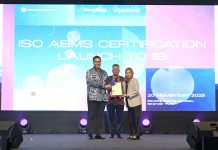Despite Minister of Economy, Rafizi stating during a July 2024 press conference that the agreements for the Johor-Singapore Special Economic Zone (JSSEZ) were expected to be finalised by September 2024, the deadline has now been pushed back to December 2024. This update was confirmed by Lee Ting Han, Chairman of Johor’s State Investment, Trade, and Consumer Affairs Committee, in an August 2024 interview.
So, what is holding back the finalisation? One of the primary reasons for the delay, aside from the legal advice from both governments’ Attorney-General’s Chambers, is the issue of the “facilitation fund,” which is expected to be jointly contributed by the governments of Singapore and Malaysia.
Given that the facilitation fund is a joint effort by both governments, it is reasonable for each to expect benefits for their respective countries. Malaysia stands to gain directly from the JSSEZ, as the zone is located within Malaysian territory. The economic activities generated within the JSSEZ will contribute to both direct and indirect taxes, providing immediate benefits to Malaysia. For Singapore, while the JSSEZ could alleviate issues related to high land and labour costs, there is a potential downside: the leakage of GDP to Malaysia. Whether Singapore can compensate for the GDP that might be lost to Malaysia with gains from higher-value sectors remains uncertain. This largely depends on how well the JSSEZ aligns with Singapore’s broader economic roadmap. Therefore, it is crucial for the Singaporean government to carefully consider what short-term or immediate benefits it can negotiate with Malaysia in return for contributing to the facilitation fund.
Additionally, according to the Singapore Business Review, DBS expects Singaporean retailers to lose as much as 4% of their sales — equivalent to S$2.1 billion (RM7.05 billion) in 2023 as more Singaporeans are anticipated to make trips to Johor Bahru for shopping. This trend is expected to intensify with the completion of the Rapid Transit System (RTS) and the finalisation of the JSSEZ.
It is also important to note that Singapore’s General Election (GE) is approaching, likely to be held between the end of 2024 and early 2025. The loss in retail sales mentioned above is significantly impacting neighbourhood business owners, who represent a substantial grassroots constituency. With Singapore’s leadership transition and the appointment of a new Prime Minister this year, the government will likely seek to minimise any potential political risks during this crucial period.
Given these considerations, it is not unreasonable to anticipate that the JSSEZ agreements might be finalized and signed after the Singapore General Election. The first quarter of 2025 seems to be a more feasible timeline for finalisation and signing.




